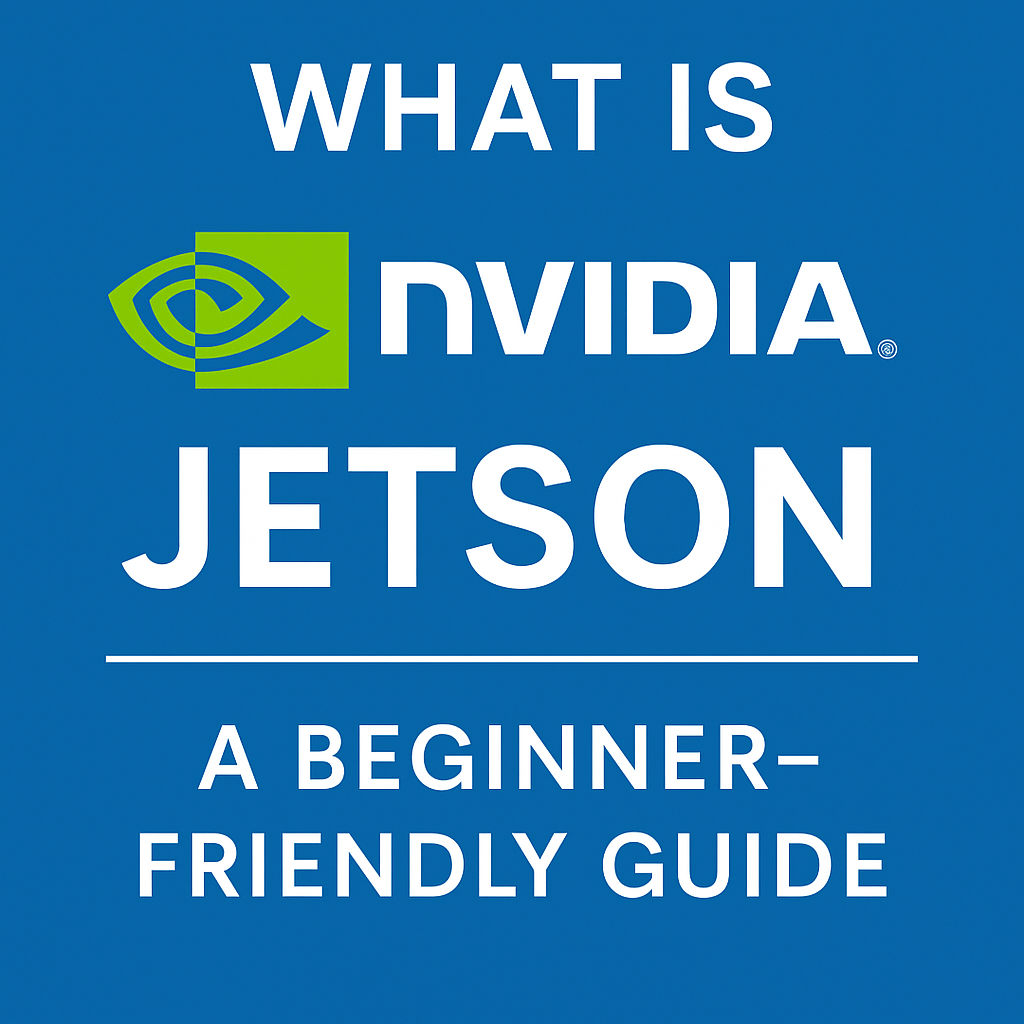Introduction: Why Jetson Matters in the Edge AI Era
As artificial intelligence moves from cloud-based systems to the edge, compact and efficient hardware becomes critical. NVIDIA’s Jetson platform is a response to this shift—offering embedded computing modules designed to run AI models in real-time, directly on devices like robots, drones, and smart cameras. With Jetson, tasks like object detection, speech recognition, and autonomous navigation can be executed on the device itself, eliminating the need for constant cloud access and reducing latency.
What Exactly is Jetson?
Jetson is a family of edge AI computing modules created by NVIDIA. These small boards integrate:
- CUDA-enabled GPU (for parallel computing and AI inference)
- ARM CPU (for general-purpose tasks)
- Shared memory and I/O interfaces
- Support for Linux-based OS (JetPack SDK)
Each Jetson module is essentially a miniaturized AI supercomputer optimized for low power consumption and high performance. Developers can deploy deep learning models directly on Jetson hardware using popular frameworks like TensorFlow, PyTorch, and ONNX.
Jetson Lineup Overview: From Entry-Level to Industrial Grade
Here’s a breakdown of the major Jetson models and their key specifications:
| Model | Use Case | Specs |
|---|---|---|
| Jetson Nano | Learning & prototyping | 128-core Maxwell GPU, Quad-core ARM Cortex-A57, ~0.5 TFLOPS FP16 |
| Jetson Xavier NX | Robotics & edge inference | 384-core Volta GPU, 6-core Carmel CPU, up to 21 TOPS (INT8) |
| Jetson Orin Nano | Lightweight AI edge systems | Ampere GPU, 6-core Cortex-A78AE, up to 67 TOPS |
| Jetson Orin NX | High-performance edge AI | Ampere GPU, 8-core Cortex-A78AE, up to 100 TOPS |
| Jetson AGX Orin | Industrial & autonomous machines | Ampere GPU, 12-core Cortex-A78AE, up to 275 TOPS |
Each model varies in terms of computing power, memory bandwidth, and thermal design, allowing developers to choose the right hardware for their specific AI application.
reference : Jetson Modules
Jetson vs. Raspberry Pi: Why Jetson is Better for AI
Although Raspberry Pi is a popular SBC (single-board computer), it lacks the computational power required for AI workloads. In contrast, Jetson boards offer:
- GPU acceleration with CUDA support
- TensorRT for optimized inference
- Native support for AI frameworks
- Greater throughput for real-time AI tasks
A Raspberry Pi might handle a lightweight task like face detection in still images. But if you need to track multiple objects in video streams, Jetson is a far better choice.
reference : Comparison between Raspberry Pi and Jetson Nano
Real-World Applications of Jetson
Jetson boards power AI at the edge across a wide variety of industries:
- Smart Retail: Cameras powered by Jetson analyze customer behavior or detect shelf stock levels.
- Autonomous Robotics: Jetson runs SLAM (Simultaneous Localization and Mapping) and object avoidance in real time.
- Industrial Automation: Used in quality inspection, predictive maintenance, and machine vision.
- Smart Cities: Deployed in traffic analysis systems, security surveillance, and environmental monitoring.
Jetson’s compact form factor and industrial reliability make it a top pick for AI in harsh or mobile environments.
Software Stack: JetPack SDK and AI Frameworks
NVIDIA provides a comprehensive software environment for Jetson development:
- JetPack SDK: Includes Linux OS, CUDA, cuDNN, TensorRT, and DeepStream.
- AI Frameworks: Supports TensorFlow, PyTorch, ONNX, and more.
- ROS Support: Full integration with the Robot Operating System for robotics applications.
- Cloud-Native Tools: Includes containerization with Docker and orchestration with Kubernetes.
These tools allow developers to train in the cloud and deploy seamlessly at the edge.
Challenges and Considerations
Despite its advantages, Jetson does come with some trade-offs:
- Price: Higher than general SBCs like Raspberry Pi.
- Power: Entry models are power-efficient, but higher-end Orin boards require more energy.
That said, NVIDIA continues to release cost-optimized versions and improve software support, making Jetson more accessible.
Conclusion: Why Jetson is a Game-Changer
Jetson modules bridge the gap between AI research and real-world deployment. Whether you’re building a smart robot, an autonomous drone, or an industrial monitoring system, Jetson offers a reliable, powerful, and scalable hardware platform for real-time AI. With a rich ecosystem of tools, tutorials, and community support, Jetson remains one of the most developer-friendly and capable edge AI solutions on the market.
Internal Link Suggestion:
For a real-world use case of edge AI in action, see how McDonald’s is integrating AI at the edge to optimize operations and customer service.

